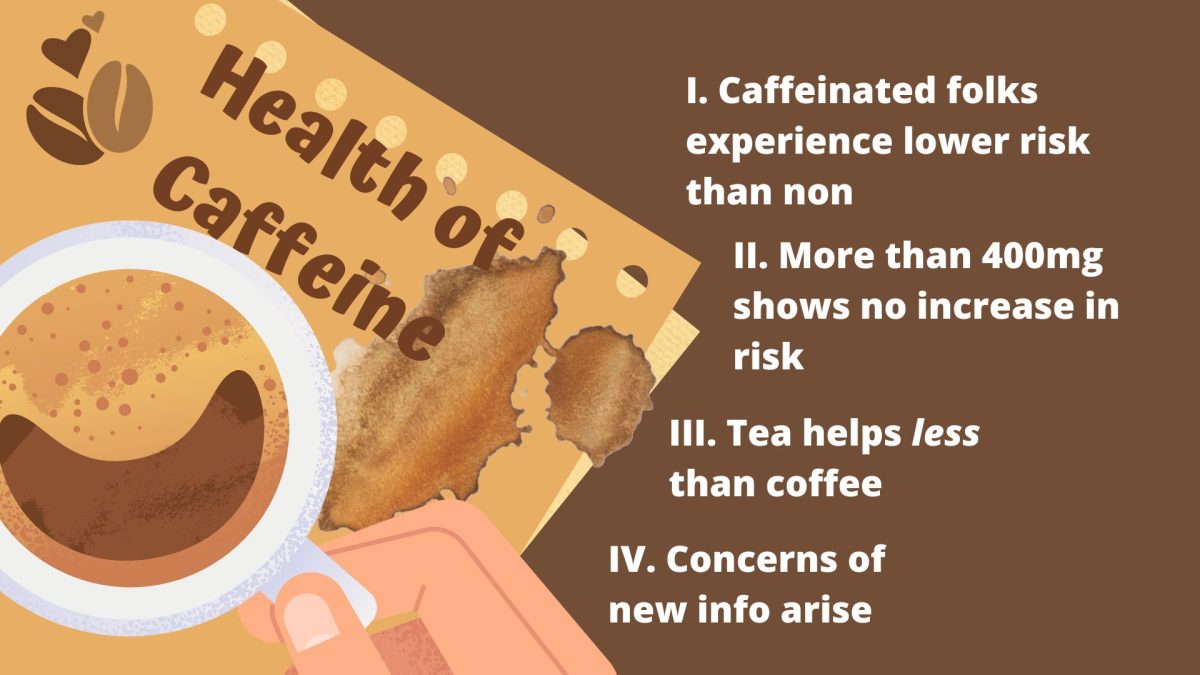Drinking large amounts of caffeine is usually immediately declared bad for you, with many health programs online recommending people limit themself to one small coffee a day and little to no sodas. A new study that began in 2012 has followed up 12 years later with results disputing these previous facts, finding that those with 200-300 milligrams a day of caffeine have the lowest risk of cardiometabolic diseases like strokes, diabetes type II, and coronary heart disease, and no additional risk shown for those who go over. Caffeine lovers have gained a one-up on those against it with the release of this study supporting the love of caffeinated drinks to a degree.
The FDA already recommends 300-400 milligrams as the maximum for adults but still relates drinking less as being the ‘healthier’ decision. New studies published by the Journal of Clinical Endocrinology & Metabolism have found this not to be entirely true, and that those drinking less than 100 milligrams are more likely than their caffeinated counterparts to be at risk of cardiometabolic diseases in addition to having lower life spans. Coffee drinkers have the lowest risk compared to those who drink tea or avoid caffeine altogether with a 50% reduction in risk. Those who drink both only gain a 40% reduction, and tea drinkers at first seemingly had the highest reduction rate but the continuation of drinking the tea long term begins to taper off the results.
The study also included those who drank more than 400 milligrams of caffeine a day and could find no difference in risk or damage to cardiometabolic health when compared to their low-caffeine friends. Upon hearing of the study, some doctors not involved have wanted to put out warnings that more context to participants’ lives is needed and that if someone already has a heart condition caffeine will not help repair the already existing concern. Some have even contested that the study was false, citing much older studies saying caffeine is generally bad overall, though lack studies they have done in recent years.
A major misconception people will likely have with this study is all formats of caffeine are fine, but it must be considered what is alongside that caffeine. The caffeine in soda is not the concern, but the artificial sugars like corn syrup. People also may assume synthetic and natural caffeine are different healthwise, but both are processed by the body the same way. Food also can contain caffeine naturally including fruits and vegetables, which people often can associate with good health.
The reality is caffeine is not inherently bad, someone drinking more coffee than average compared to another person does not matter. Both can be perfectly healthy people who just prefer more or less caffeine, or may need it depending on daily activities. If someone already has sleep struggles, items with heavy caffeine levels may not be the best option, but consuming it progressively in different sources throughout the day still is acceptable. Caffeine lovers can be just as healthy as someone who avoids it every day, and now discovered they can be even healthier.














